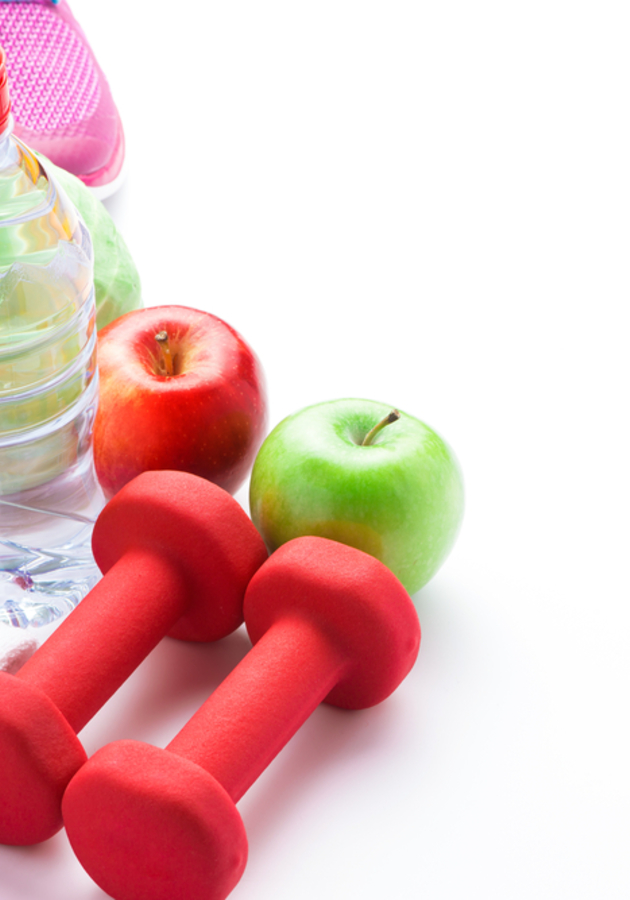We live in a world that often imposes boundaries on our mental and physical health. The book ‘’Boundless’’ by the bestselling author Ben Greenfield encourages us to overstep those boundaries and use the full potential of our bodies and minds. So, get ready to learn how to get the most of your capacities and live a long, healthy life – in other words, get ready to discover how to become boundless!
Why do we burn out?
Imagine yourself preparing for one of the most challenging sporting events in the world – The Ironman Triathlon. The preparation process requires you to make radical changes to your lifestyle: you devote 12 to 15 hours per week to training, go to bed at 8:30 p.m. every day, eat a special diet, spend money on training costs, sports nutrition, and the triathlon participation fee. You manage to endure life under this discipline, and you get close to fulfilling your dream of becoming an Ironman. The day of the event comes. You complete a 2.4-mile swim, a 112-mile bike ride, and during the 14-mile marathon run, you realize you are even closer to completing your goal. But suddenly, things get ugly. Your body and brain shut down. You bonk.
This is what happened to Ben Greenfield in 2013, and it took him by surprise as he thought he had figured out how to ‘’biohack the bonk.’’ Part of this strategy was living a ketosis lifestyle by following a high-fat, low-carb diet while getting ready for the race. In order to spare his muscle glycogen and begin burning the tens of thousands of calories of his stored body fat, he consumed MCT and coconut oil, electrolytes, and low amounts of a slow-release form of carbohydrate during the race.
Once Greenfield explained to his physician what happened, he said, “Oh, that’s simple. You didn’t bonk. You got central nervous system fatigue.” Central nervous system fatigue occurs when your brain chemistry is out of balance. When the body works hard, parts of the brain cells called neurotransmitters change their concentration, which ultimately leads your body to burnout.
For the next race, Greenfield changed his fueling strategy, switching to amino acids, and crossed the finish line in a very respectable nine hours and 59 minutes.
Learning about neurotransmitters
‘’To begin your journey to becoming boundless,’’ writes Greenfield, ‘’you must first reboot the communication between your nervous system and your body.’’ We have seen from Greenfield’s experience how a good brain-body connection produces extraordinary results. Even if you have no ambition to participate in extreme sports competitions, enhancing the quality of this communication is what you should strive for. It will positively affect your emotions, intellect, motivation, cravings, focus, and, ultimately, your ‘’ability to feel wholly human.’’
The reason why Greenfield’s physician advised him to switch to amino acids is that they are ‘’the building blocks of neurotransmitters.’’ The most common neurotransmitters are serotonin and dopamine and they, along with several other types, play a crucial role in the communication between our nervous systems and our bodies.
How does this communication work? ‘’Your brain communicates with the rest of your body by initiating a chain reaction that runs along a string of nerve cells, or neurons,’ says Greenfield. Neurons release chemicals – neurotransmitters – that carry the message until it reaches target muscles or glands. Neurotransmitter excess or deficiency comprises the whole transmission. This can quickly lead to issues such as depression, food cravings, anxiety, panic attacks, insomnia, eating disorders, migraines, distractibility. In the end, neurotransmitter imbalance is what made Greenfield bonk during the Ironman.
By testing your blood, cerebrospinal fluid or urine, a physician can determine levels of your neurotransmitters. There is also one relatively new and more accurate method of assessing neurotransmitters, called the DUTCH Complete panel. However, some experts state that lab testing is not scientifically validated and that the best way to determine neurotransmitter imbalances is to assess your symptoms with symptom-based questionnaires, available online.
Taking care of neurotransmitters
If you find out or suspect your neurotransmitters are out of balance, adopting these habits will help. Even if you’re not experiencing any problems at the moment, they will help nurture your brain cells.
- Avoid antidepressants. Antidepressants increase serotonin levels in your brain. Use natural antidepressants such as acetyl-L carnitine, probiotics, and curcumin instead.
- Limit your intake of stimulants. To return balance to your brain chemistry, take a break from caffeine for a week, every four to eight weeks, or drink two cups of low-caffeine coffee per day.
- Avoid toxins. Don’t use colognes, perfumes, or air fresheners, as they can drastically affect neurotransmitter production.
- Avoid sensory overload. Whenever you can, avoid exposing yourself to loud sounds, fluorescent lightning, and rapid audio-visual effects in movies or video games.
- Fix your gut. An unhealthy gut might be a sign of neurotransmitter imbalance. Put yourself on the Autoimmune Paleo (AIP) diet and the low-FODMAP diet for four to eight weeks.
- Replace your building blocks. As you already learned, amino acids, along with vitamin B and minerals, are the primary constituents of neurotransmitters. Some of the best high-quality amino acid sources are grass-fed beef, wild salmon, eggs from pastured chickens, raw organic dairy, almonds, quinoa, and spirulina or chlorella.
- Lube your nerves. Insulating myelin sheaths protect your nerve cell and help the transmission of messages between your brain and the rest of the body. The high intake of Omega-3 fatty acids can improve their formation.
- Repair your genes. Several types of genes, called the Super Seven, affect neurotransmitters. An inexpensive salivary DNA test shows you which types you possess, and once you find this out, you can start fixing them.
- Focus on antioxidants. Antioxidants reduce neuronal damage and degeneration. You can find them in lemons, green peppers, tomatoes, and red berries.
Moderate is the best
Exercise and the right nutrition improve a body’s well-being, and when we are in good health, we can make the most of its potential. Unfortunately, there is a common misbelief among people that only strict conditions, such as rigorous diet or high-intensity exercises, enable us to shape our body and use it to its full capacity. If you are one of them, you may be surprised to learn that a minimum amount of exercise positively affects your health, the performance and shape of your body, and improves longevity. Let’s explore the results studies conducted on this topic.
In 2015, two studies examined how much exercise you need to get longevity benefits. The first study divided participants into four groups. The highest risk of death faced those who didn’t exercise at all. Those who exercised a little reduced the risk of premature death by 20%. Those who did 150 minutes of exercise per week had a 31% lower risk of dying prematurely. In the end, people that were engaged in moderate physical activity, which consisted mostly of walking for 450 minutes per week, were 39% less likely to die before their time. Interestingly, those who performed intense workouts never really got any extra benefits compared to the last group.
The second study reached a similar conclusion, and discovered that occasional, vigorous, high-intensity exercise also lowered the mortality risk. Greenfield clarifies: ‘’Vigorous-intensity aerobic exercise makes you breathe hard and fast, makes your muscles burn, and significantly increases your heart rate ... moderate-intensity aerobic exercise raises your heart rate and makes you sweat.’’
The results of these studies show us we can ‘’optimize our body and defy aging’’ with minimum effort. Becoming boundless is not necessarily connected with becoming extreme.
Anti-aging mystery
Modern science gives us an insight into the way our bodies function, enabling us to understand its signals and cure its defects. Nonetheless, there are still many aspects of the human body that intrigue scientists and researchers – and one of them is achieving maximum human lifespan. Our obsession with death and the fight against the aging process is as old as humanity, and surprisingly, despite all the advancements in science, we still haven’t fully decoded the secrets of longevity.
‘’But when we observe nature, some amount of immortality, or at least a significantly longer life span, appears to be achievable.’’ Some creatures around us are gifted with a long life, and scientists study them to learn more about longevity. Take the naked mole-rat, for example. Thanks to the way its cells make protein and handle glucose, this creature has an impressive 30 to 40--year-long life span. Hummingbirds, lobsters, and tortoises also enjoy extreme longevity. Turritopsis dohrnii, known as the immortal jellyfish, regenerates old cells into new ones, transforming itself into a baby jellyfish at the end of its life.
When it comes to humans, the longest living person on record was Jeanne Calment from France, who died in 1997 at the age of 122. In 2017, Violet Brown from Jamaica died at 117. At the moment, the oldest person alive, Kane Tanaka, is 115 years old. All of them claim they have the secrets to living a long life. When we observe the lifestyle of these women and others whose lifespan is longer than average, we find all of them share similar habits: an active social life, no smoking, a plant-based diet, and moderate physical activity.
In Greenfield’s belief, embracing both modern science and ancestral wisdom allows us to live a long and healthy life. Let’s see what are some of the life-extending strategies we can adopt.
Secrets to a longer life
If you want to live a long life, redefine your relationship to both mental and physical health, as well as your attitudes to socializing.
- Don’t smoke. Be aware that chronic smoking takes away several years of your life.
- Eat plants. Base your diet on plants (home or locally-grown). Supplement them with smaller amounts of animal protein, legumes, grains, and corn.
- Avoid processed and packaged foods. Refined carbohydrates, artificial flavors, processed vegetable oils, and natural sweeteners are very rare in diets for longevity.
- Eat legumes. Include a daily dose of legumes in your diet, and follow ancestral techniques for preparing them (sprouting, fermenting, and soaking).
- Incorporate low-level physical activity throughout the day. Walk every day, do chores with your hands, not with machines, socialize through playing games or sports.
- Prioritize social engagement. Spend time with your family and friends. Socializing decreases stress and leads to a more purposeful and longer life.
- Drink low-to-moderate amounts of alcohol, especially wine. Moderate and regular wine consumption improves the absorption of food, reduces the risk of cardiovascular diseases, cancer, and stress.
- Restrict calories and fast. Caloric restriction extends lifespan and reduces the risk of diseases related to metabolic health, heart disease, and cancer. Fast occasionally for ten to twelve hours a day.
- Possess a strong life purpose. Studies have shown that those who possess a clear purpose for their life live longer than those who don’t.
- Have low amounts of stress. Find a way to manage stress daily. Eliminate haste from your life.
- Engage in a spiritual discipline or religion, or believe in a higher power. Research has shown a connection between longevity and faith. Life is more meaningful and hopeful when we believe that our planet has an almighty creator.
- Remain reproductively useful. Continue to have sex and produce children, for as long as you can.
Final Notes
"Ben Greenfield masterfully combines science, practical experience, recipes for life, and entertaining stories of his extreme experiments to produce an epic book that is inspiring, informative, and life-changing," writes Mark Divine. ‘’Boundless’’ truly inspires us to change. Its immense value lies in the idea that good health is not a privilege. It’s something that we all can enjoy even when we make small efforts.
12min Tip
Dedicate every day to your health – nurture your brain and body with the right food, exercise moderately, and spend more time socializing.





























